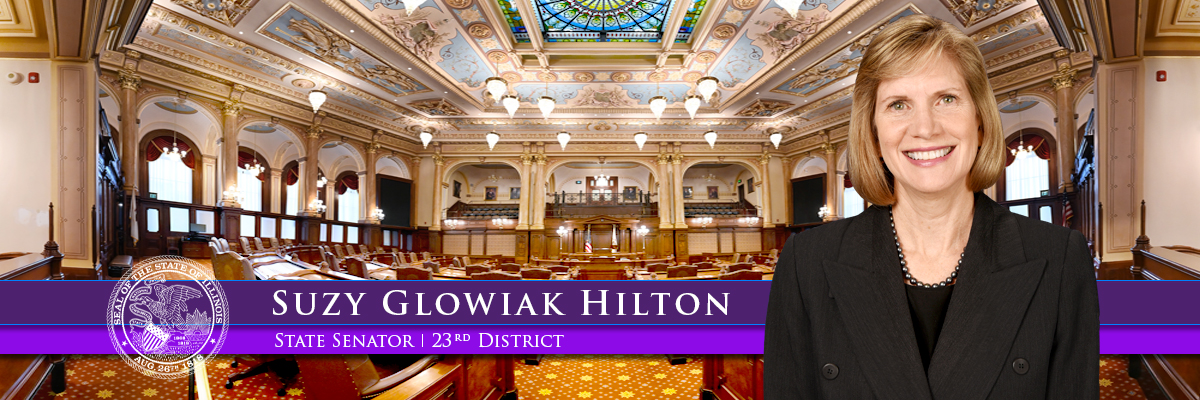- Category: Press Releases
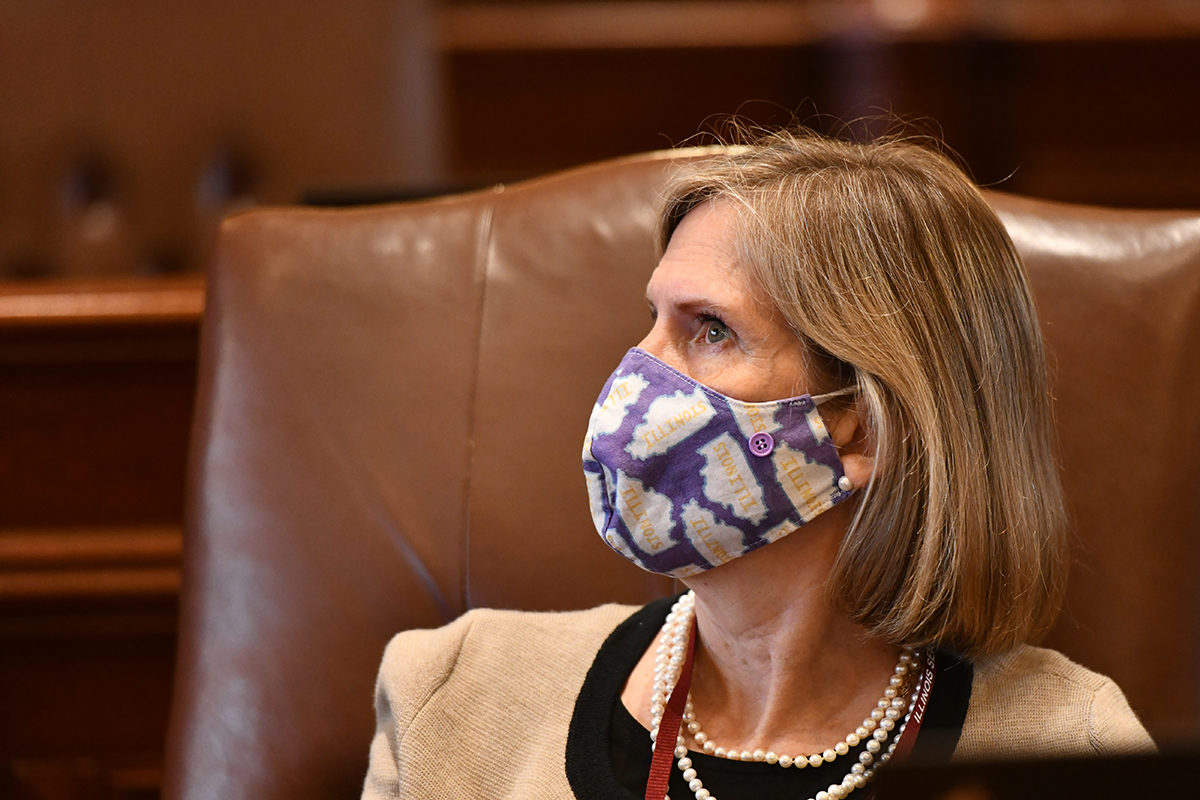 SPRINGFIELD – As businesses struggle to recover from pandemic-related financial hardship, State Senator Suzy Glowiak Hilton (D-Western Springs) advanced a measure through the Senate Thursday with bipartisan support to help ease the burden.
SPRINGFIELD – As businesses struggle to recover from pandemic-related financial hardship, State Senator Suzy Glowiak Hilton (D-Western Springs) advanced a measure through the Senate Thursday with bipartisan support to help ease the burden.
“When making plans for economic recovery after the pandemic, local governments are capable of deciding what is best for the community’s financial future,” Glowiak Hilton said. “To provide support where it’s needed most, this measure allows units of local government to determine where waiving fees would be beneficial to a struggling business.”
The proposal creates an option for counties and municipalities to waive licensing, permitting or registration fees for local businesses and services. To qualify, businesses must demonstrate financial need from the pandemic.
Counties and municipalities regulate businesses in a multitude of industries that may qualify, including bars, restaurants, construction, insurance, transportation, tourism and entertainment.
“Numerous industries have faced unique challenges over the last year and a half,” Glowiak Hilton said. “This proposal allows governments to offer relief to any local business that demonstrates financial loss.”
House Bill 2454 passed the Senate Thursday.
- Category: Press Releases
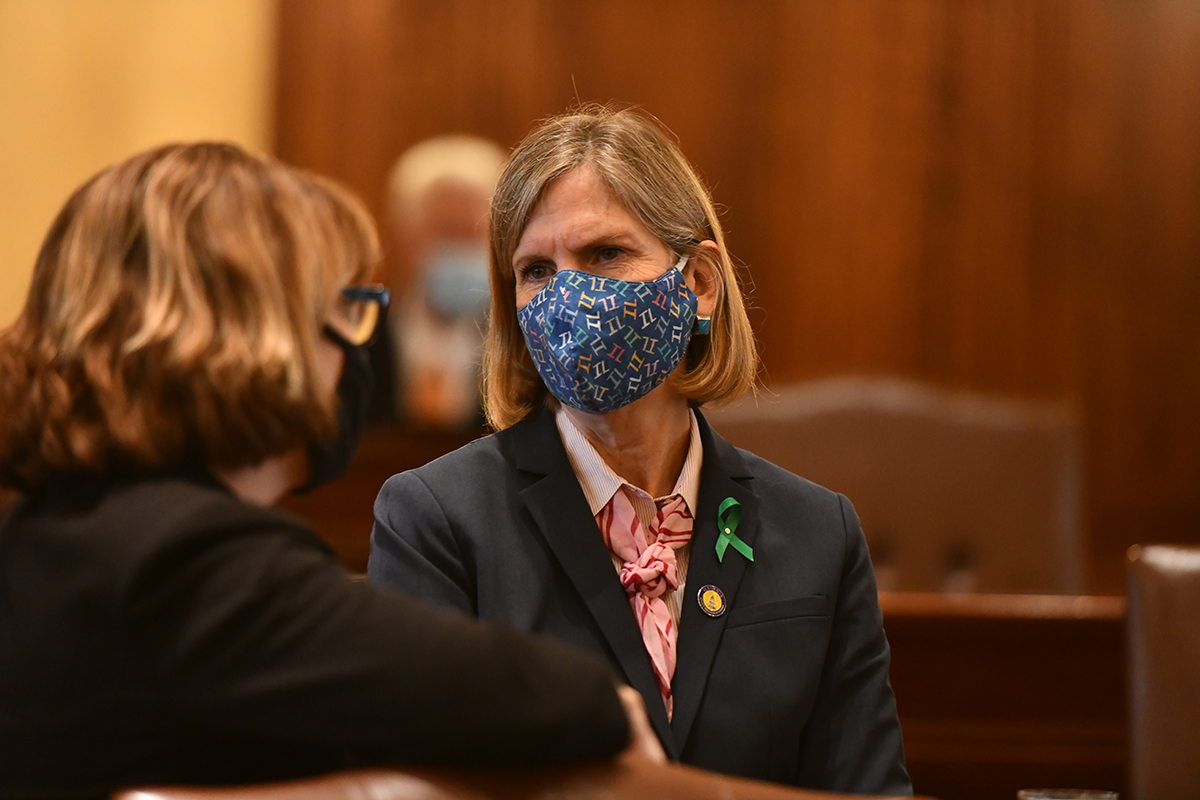
“Tobacco use is the leading cause of preventable disease and death in the U.S., but corporations market e-cigarettes and vaping to children as a safer, trendier alternative to smoking,” Glowiak Hilton said. “In order to keep kids from developing harmful nicotine addictions, it’s critical to educate students on the dangerous side effects of using all forms of tobacco.”
Glowiak Hilton’s proposal expands Illinois’ current tobacco health curricula taught in elementary and secondary schools to include health concerns associated with e-cigarettes and other vapor devices.
“Vaping can be detrimental to development for young children, teens and young adults,” Glowiak Hilton said. “Adolescents are vulnerable to tobacco companies’ deceitful marketing ploys, and it’s our responsibility to give them the facts.”
House Bill 3202 passed the Senate Executive Committee Wednesday and moves for further consideration before the full Senate.
- Category: Press Releases
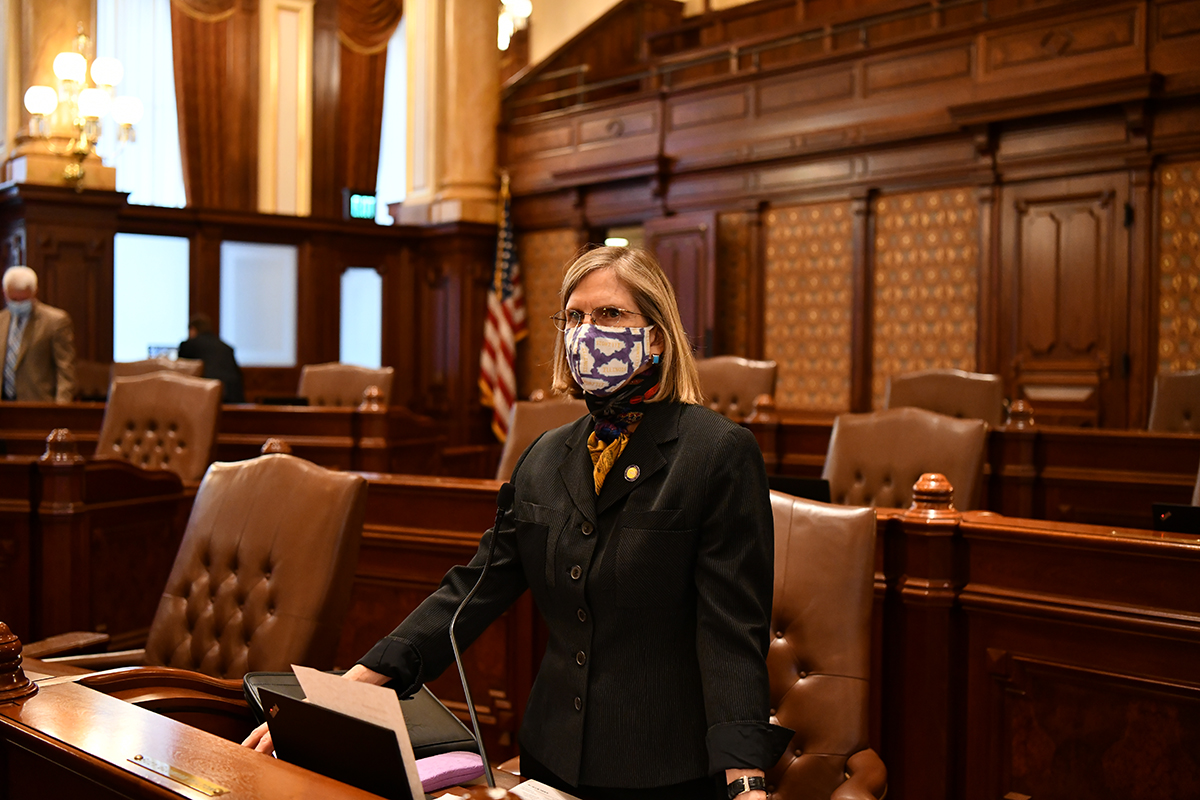
“Although highlighted by school disruptions over the last year and a half, many students experienced mental health distress long before the pandemic,” Glowiak Hilton said. “To ensure children are receiving the best mental health services in school, this proposal allows state agencies to work together to improve prevention and treatment resources.”
An initiative of the Illinois State Board of Education, Glowiak Hilton’s proposal allows board officials to collaborate with the Illinois Children’s Mental Health Partnership (ICMHP) to give students access to a wider range of mental health resources at school.
In 2003, Illinois passed the Children’s Mental Health Act to create the ICMHP. The agency advocates for children and their mental health by promoting and ensuring access to services.
“The ICMHP develops short- and long-term recommendations for Illinois to provide coordinated mental health services for students,” Glowiak Hilton said. “By allowing this collaboration, we’re strengthening our state’s mental health care system and helping connect students with the best prevention and treatment services.”
House Bill 212 passed the Senate Behavioral and Mental Health Committee Tuesday and moves for further debate before the full Senate.
- Category: Press Releases
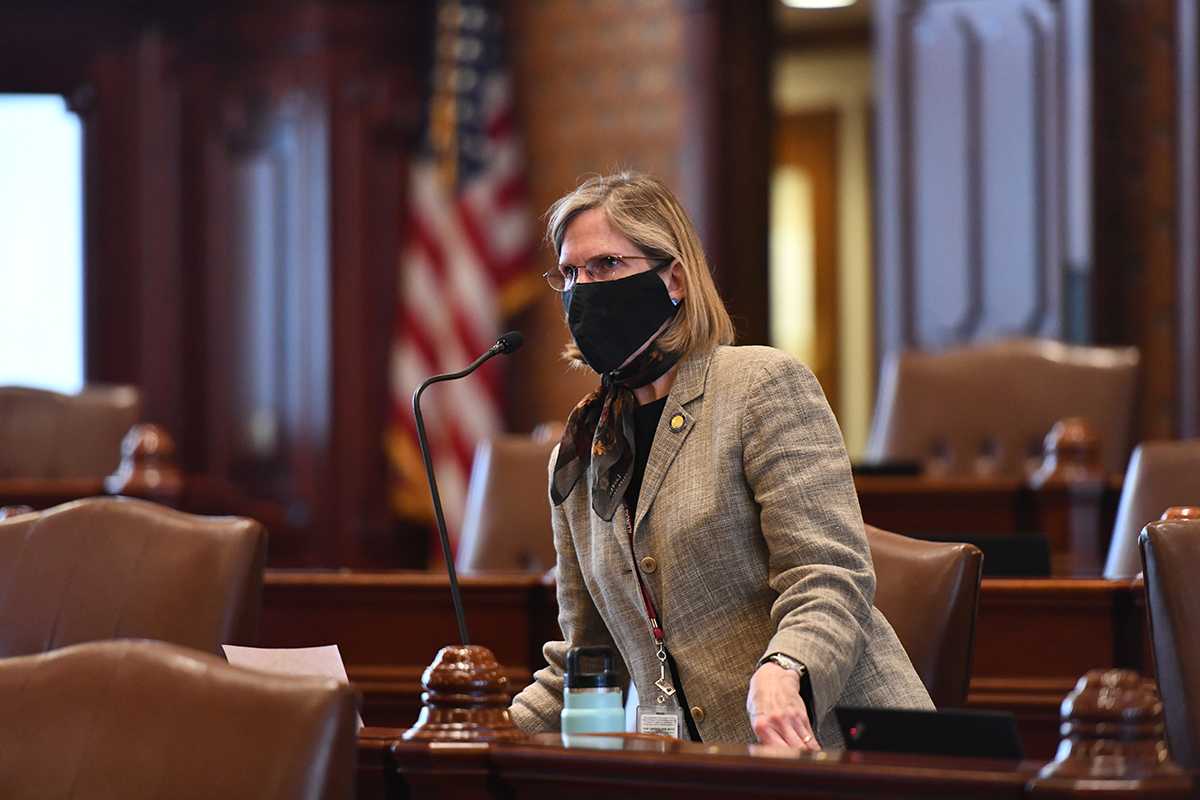
“Getting vaccinated is the right thing to do for the safety of your loved ones and neighbors,” Glowiak Hilton said. “Not being able to afford the COVID-19 vaccine should not stop anyone from receiving it.”
Under the proposal, the coverage requirement would apply to individual and group health insurance policies and managed care plans under Medicaid in effect since March 9, 2020. Companies would not be allowed to impose cost-sharing measures on patients.
“Some residents have chosen not to get the vaccine for health or personal reasons, but the cost should not be a deciding factor,” Glowiak Hilton said. “The sooner our state’s population is vaccinated, the sooner we can get our economy moving, build up our damaged industries and regain some sense of normalcy.”
House Bill 2406 awaits action by the Senate Insurance Committee.
More Articles …
Page 37 of 56
